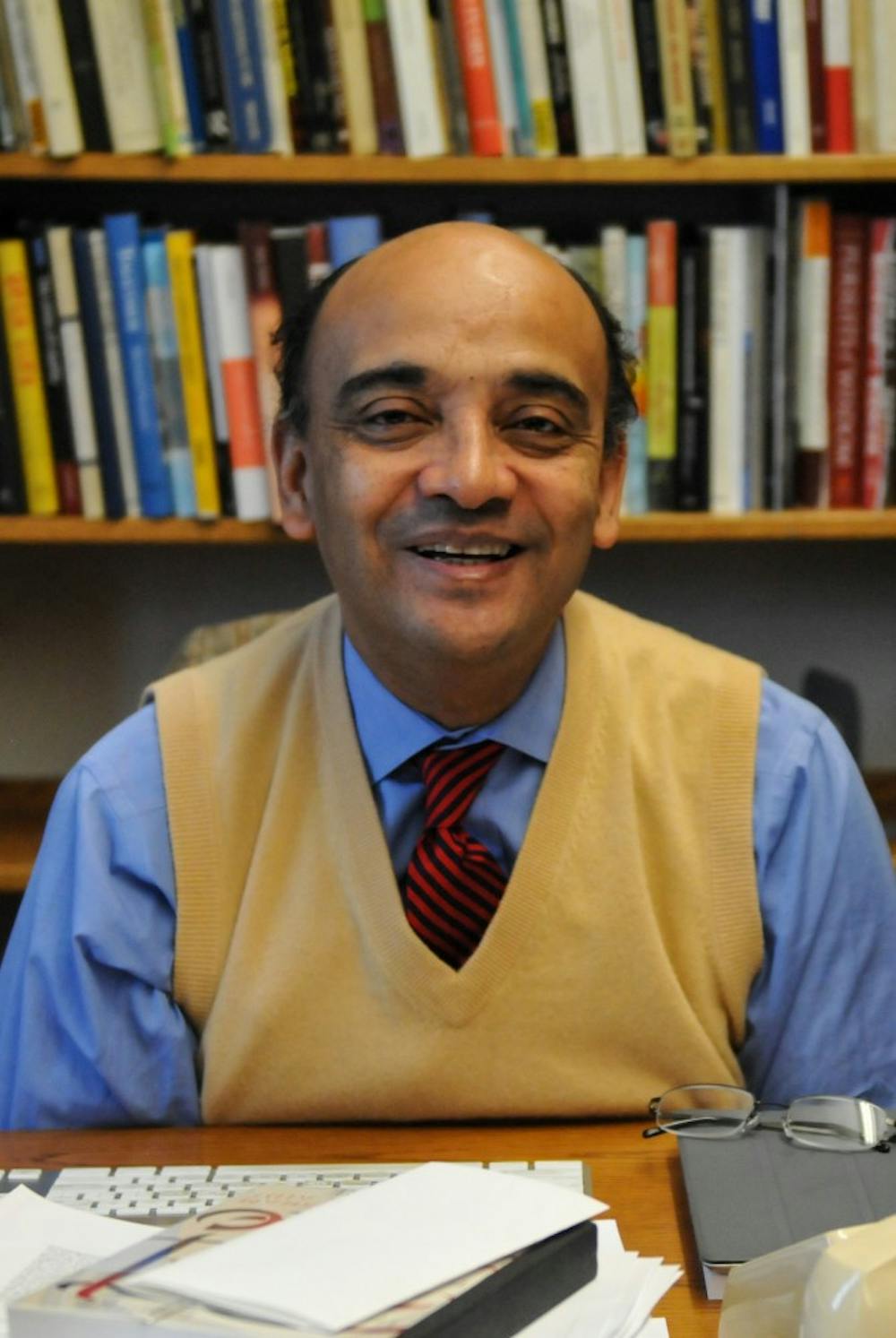Kwame Anthony Appiah, currently the Laurance S. Rockefeller Professor of Philosophy, will leave the University in January to teach at New York University.
Appiah, who has taught in the philosophy department since 2002, was integral to the creation of the Center for African American Studies. He also wrote "The Honor Code," a reflection on “moral revolutions” that President Christopher Eisgruber '83assigned to all members of the Class of 2017 during the summer prior to matriculation.
Appiah has taught philosophy and African American studies at the University of Ghana, Cornell, Yale and Harvard. In 2012, he received the National Humanities Medal. He has served as the chair of the American Philosophical Association Executive Board and the Board of the American Council of Learned Societies. Foreign Policy magazine named him one of the top 100 global thinkers in 2010.
Appiah said that although he has been happy at Princeton, he’s grown tired of commuting from his home in New York City.
“One [reason] is that I have a spouse in New York City,” Appiah said. “We have been oscillating back and forth for 11 years, and it’s an attractive possibility to live together all the time. So that’s one thing.”
Stephen Schiffer, acting chair of the NYU philosophy department, said that he has worked at Princeton while living in New York City as well and empathized with Appiah in that regard.
“I had lunch with [Appiah] the other day,” said Schiffer. “He has only good things to say about Princeton, but he lives in New York … and New Jersey Transit really sucks.”
Appiah also said he was attracted to the way NYU’s international network would allow him to teach abroad and test his ideas in a variety of different locations and cultures.
“It took a big challenge to persuade me that it would be worth leaving,” Appiah said.
For the past 11 years, Appiah has taught both semesters on the Princeton campus. At NYU, he will spend half the year teaching and working across a system of 12 international universities in places such as Abu Dhabi, Shanghai, London, and Accra, where Appiah grew up. This spring, Appiah will be spending one or two weeks in Abu Dhabi, and at least one week in another campus.
Eddie Glaude, Jr., chair of the Center for African American Studies, said Appiah’s departure would be a “huge loss” for the University.

Filling Appiah’s vacancy will be up to the University, not the Center for African American Studies. This means that his departure will not necessarily open a spot for a new philosopher with similar interests, Glaude said.
“The way people think about departments and programs tends, in my view, to focus too much on the individuals who happen to be best-known and not enough on the solid depth and breadth of the faculty,” Appiah said. “If you have a program that is dependent on one or two people, you’re in a bad way, and Princeton doesn’t have that.”
Appiah’s departure will leave some of his students in the lurch, including Jake Tempchin ’14, who selected Appiah as his senior thesis adviser.
“It kind of sucks,” Tempchin said. “I have to have a new post-doc advise me. I haven’t met him yet; I don’t even know if he’s here yet. So I wish he were staying.”
Tempchin said he will remember Appiah as a good teacher.
“I’ve taken two classes with him, and he always has good insightful comments,” Tempchin said. “He’s very knowledgeable. The Seminar of Normative Ethics, especially, was one of the best philosophy courses I’ve taken here.”
Appiah arrived at the University in 2002, the same year Cornel West GS ’80, another noted scholar in the field of African American Studies, publicly moved from Harvard to Princeton after a dispute with Harvard’s then-president, Lawrence Summers. Appiah and West’s arrival at the University from Harvard heralded the start of a period of greater focus on African American studies at the University. West left the University for Union Theological Seminary in New York City in 2011.
Appiah said his decisions to leave Harvard and Princeton were not influenced by West’s actions.
“I had been Cornel’s colleague both at Harvard and earlier at Yale,” Appiah said, “and I like Cornel, and I was happy to be at the place where he was at. Though we made the decision at the same time, we both made the decision independently.”
“He is to me an intellectual giant,” West said. “He is profound, brilliant, sensitive and always engaging. It has been a blessing to know him these past three-and-a-half decades.”
John Sexton, the president of NYU,told The New York Times he has been attempting to recruit Appiah for 15 years. However, Schiffer said the philosophy department was not involved in any recruitment efforts.
“It was my impression that we only recently learned that [Appiah] would be coming here,” Schiffer said. “Now, Sexton says he’s been trying to get him for years, but I don’t think that was known in [the] philosophy [department]. I mean, Sexton was probably assuming it was a no-brainer that we would welcome such a person, and that was true.”
In his position at NYU, Appiah will teach outside of New York City for one semester each year. During those semesters, he will still spend most of his time in the city. In each semester, he will travel to Abu Dhabi and another campus for a total of three weeks. Appiah said he is looking forward to the challenge of considering philosophy and ethics in international classrooms, as cultural conceptions of ethics and honor vary widely around the world.
“Since I work on questions of global justice and global ethics and have long been interested in moral and ethical conversation across societies,” Appiah said, “that seemed to me a very interesting challenge to figure out how to do that, especially because I think it’s really interesting to create in the classroom the kinds of conversation between people from different backgrounds and traditions that I think are necessary to work out our global standards and solve some of our global problems.”
Appiah said he looked forward to cross-national conversations on topics like the role of international legislation in bridging cultural divides on gender and homosexuality.
“People have very different ideas about what a commitment to the equality of men and women means in practice,” Appiah said. “I mean, Saudi Arabia has signed up to the women’s documents at the UN but it doesn’t permit them to drive, nor does it permit them to appear in public uncovered. So one has to think, from our point of view, how could they think they were carrying out a commitment to gender equality?”
Despite losing Appiah, Glaude said he was optimistic about the future of the Center for African American Studies.
“With every loss, there’s opportunity,” he said. "Professor Appiah is irreplaceable, just as Cornel West was irreplaceable, but his departure offers an opportunity for us to continue to grow and to continue to imagine the next phase of African American studies at Princeton. And we can do so because of the foundation he helped put in place.”
Correction: Due to a reporting error, an earlier version of this article misstated how philosophy professor Kwame Anthony Appiah's soon-to-be-vacant position will be filled. The University will be responsible for filling the vacancy. The 'Prince' regrets the error.








